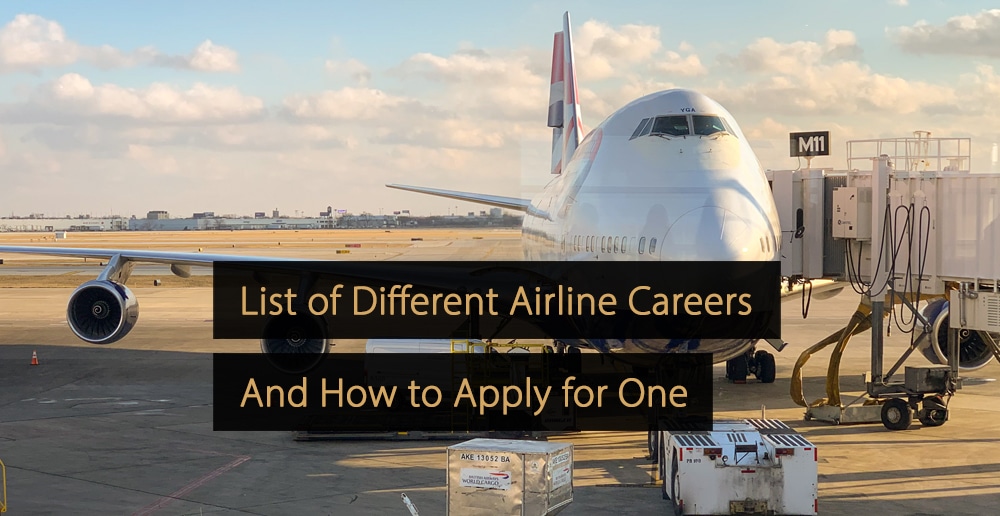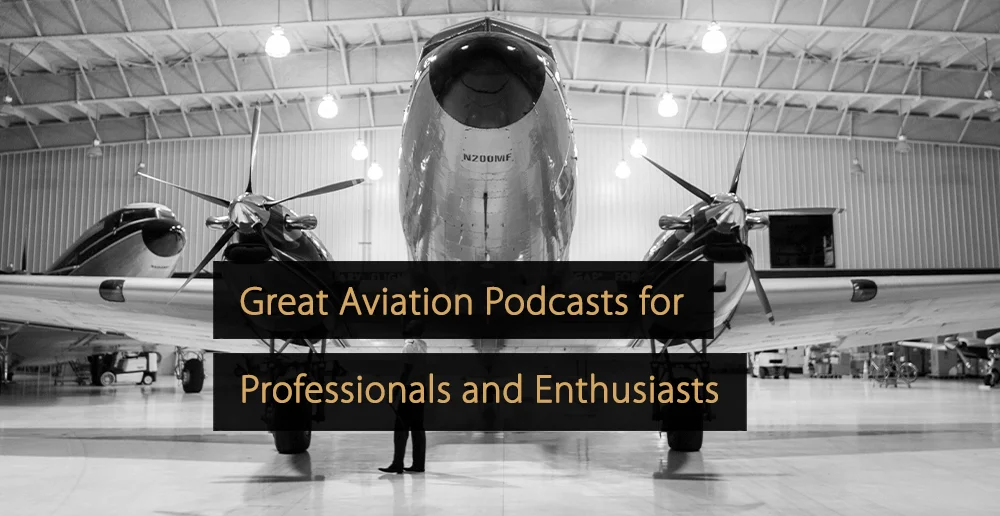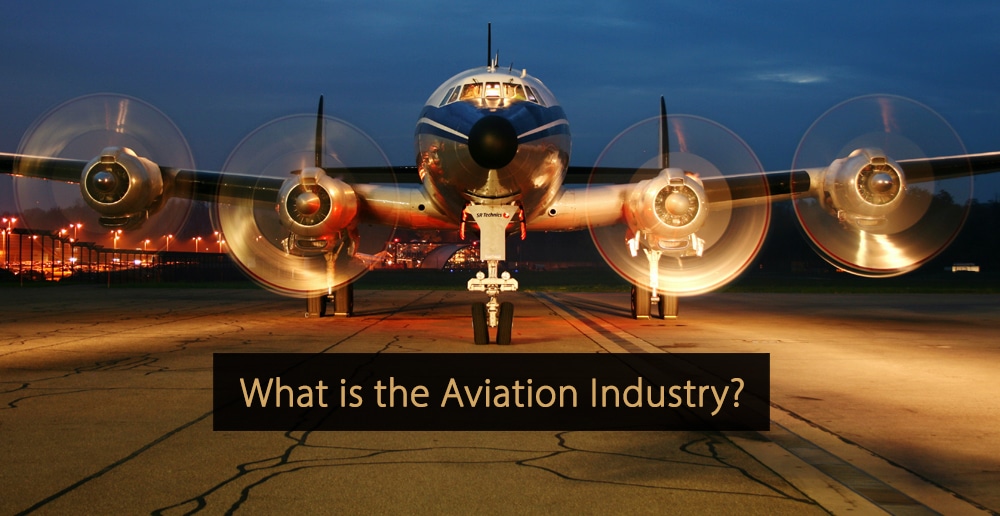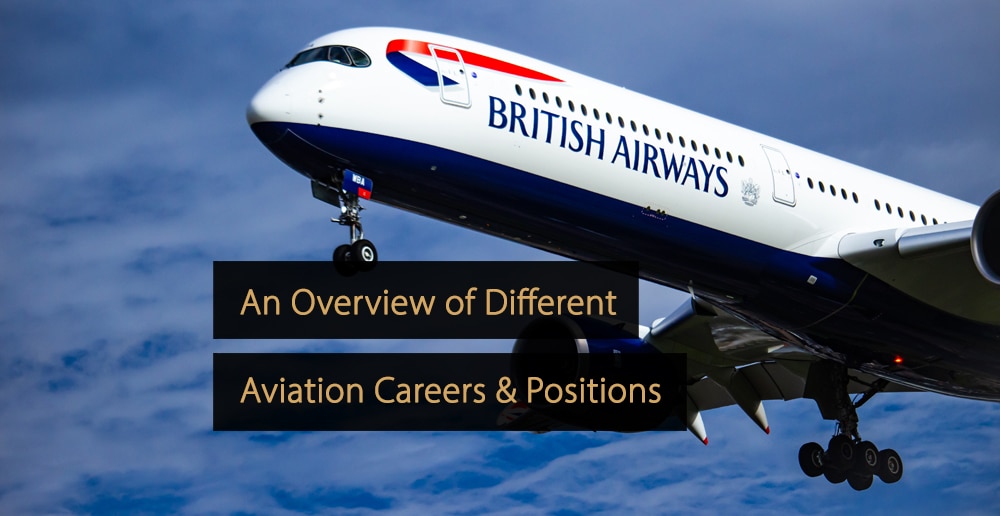Airline careers represent some of the most unique, interesting, and rewarding opportunities in the travel industry, with positions ranging from pilots and air traffic controllers to customer service staff, administrative jobs, and maintenance roles. This article will give you an overview of the key airline jobs.
Table of Contents:
- What is an Airline?
- 3 Different Types of Airlines
- Airline Careers: An Overview of Different Airline Positions
- 4 Ways to Find Airline Career Opportunities
- Video: Airline and Aviation Careers
- Overview of the Different Airport Jobs Available
- Airline Manager Jobs & the Best Channels to Find Them
- Tips for Finding Flight Attendant Jobs
- How to Hire the Best Airline Staff
- Everything You Need to Know About the Airline Industry
What is an Airline?
An airline is a business that provides transportation services via aircraft. In practice, this will typically be the transportation of either passenger, freight, or a combination of the two. Most commonly, airlines use jets, but some airlines also provide services via other vehicles, such as helicopters.
When providing passenger services, airlines usually make the most of their money by selling seats on their flights, although money may also be made by providing additional services, such as food and drinks. The largest airlines have fleets of hundreds of airplanes, providing thousands of flights every day.
The airline industry itself can be traced back to the early 20th century. By the mid-century, most airlines were government-owned. Still, there has been a shift towards private ownership since the 1980s, along with creating of cooperative airline alliances, with examples including Star Alliance, Oneworld, and SkyTeam.
3 Different Types of Airlines
Airlines can generally be broken down into three main categories, which are broadly defined in the following way:
1. International Airlines
International airlines are the largest and most high-profile airlines. As the name indicates, they operate globally, providing long-haul and short-haul flights to domestic and overseas locations. They typically have a huge fleet of large aircraft, will employ tens of thousands of people into airline careers, and their efforts will often focus on offering access to hundreds of different destinations. Examples include American Airlines and Delta Air Lines.
2. National Airlines
While national airlines are smaller than international airlines, the naming of these airlines can be slightly misleading, as many will still offer international flights. Nevertheless, they tend to have smaller fleets, may use smaller jets for some flights, and will typically focus more on domestic services, at least proportionally. These airlines still offer thousands of airline careers, but their range of services may be more seasonally influenced.
3. Regional Airlines
Regional airlines are usually significantly smaller than the other two types, and, as the name indicates, they will primarily focus their efforts on providing regional services or serving routes not offered by the major companies. These airlines operate with smaller fleets, employ far fewer people and use smaller aircraft. Often, they will partner with major airlines to provide services from smaller airports toward some of the major hubs.
Airline Careers: An Overview of Different Airline Positions
There are a large number of different airline careers available, catering to different requirements and skill sets. Below, you will find a breakdown of some of the most significant roles in the airline industry.
Pilot & Co-Pilot
Pilots and co-pilots are responsible for flying the aircraft and transporting passengers and cargo from one location to another. It is one of the most demanding airline careers because it requires technical skills, excellent judgment, the ability to work under pressure, excellent communication, and concentration.
Air Traffic Control
The job of an air traffic controller involves providing directions, instructions, and advice from the ground to pilots who are traveling through controlled airspace. It is a high-stakes airline career, which relies on your excellent communication skills and an ability to work effectively and accurately under pressure.
Flight / Cabin Attendant
Flight or cabin attendants provide various services on flights, including serving meals and helping to keep people safe while on board. Customer service and communication skills are important, and the role is ideal for anyone who wants to work in a role that allows them to travel and see the world.
Aeronautical Engineer
Working as an aeronautical engineer may be an ideal option for those seeking highly technical airline careers. The job itself focuses on the design and development of aircraft and the maintenance of aircraft components. The role requires a lot of attention to detail because aircraft need to be made to very precise specifications.
Aircraft Mechanic
As the name suggests, an aircraft mechanic is concerned with continued aircraft maintenance. The job will require you to identify and understand problems and develop solutions so that aircraft are kept in reliable working order. Concentration and technical expertise are essential, as mistakes can have serious consequences.
Airport Police
Airport police are tasked with maintaining security, keeping people safe, and upholding the law. The job requires you to be vigilant at all times, to be able to cope with high-pressure situations and to intervene when circumstances require it. In many cases, airport police will be armed and have firearms training.
Security
Security roles within the aviation industry are varied. For instance, the job can involve guiding passengers through airport scanning procedures, physically searching people and property, asking security questions, reporting suspicious behavior, and more. Completing specialist security training is a requirement.
Airport Planner
An airport planner will contribute towards the design of airport facilities, helping to develop many of the ideas put into practice. It is a technical role, which requires excellent attention to detail, a working knowledge of rules and regulations surrounding airports, communication skills, and research skills.
Airfield Operations Specialists
Airfield operations specialists must oversee aircraft take-offs and landings, ensuring safety. The job will involve dispatching aircraft, coordinating with air traffic control personnel, and helping to ensure safety procedures are in place. The job is technical in nature, and great communication skills are a must.
Airline Ticket Agent
Airline ticket agents are responsible for checking passenger tickets, allocating seats on flights, and checking in luggage. A huge part of the role is providing high-quality customer service. If you work in this role, you may give travelers their first impression of the airline, meaning communication and body language are essential.
Reservation Service Agent
A reservation service agent deals with customers seeking information and services related to flight reservations. It is an airline career strongly linked to customer service, and you will need to develop an excellent working knowledge of the airline and its offerings while providing up-to-date information about availability.
Passenger Service Agent
Like reservation and ticket agents, a passenger service agent will deal with customers with specific needs related to being a passenger. For instance, they may wish to talk to someone about upgrading their seat, booking in-flight meals, or requesting a refund, and a passenger service agent would likely deal with these issues.
Meteorologist
A huge part of aviation management involves responding appropriately to weather conditions, and a meteorologist plays the most crucial role in this. The job involves providing information to pilots and ground staff on everything from wind speeds, what conditions are expected to be like, and when changes might occur.
Baggage Handler
Working as a baggage handler can be the ideal airline career for those who are happy in a physically demanding role. The job will require you to carry or move baggage from place to place. Aside from being able to perform heavy lifting, the job also requires you to work to strict schedules, making time management crucial.
Administrative Jobs
Like many other companies, airlines also have a lot of administrative work that needs to be carried out, and regardless of whether you go into public relations or HR work, a data entry job, or another similar position, hard-working and talented people working in these airline careers is vital to long-term, sustainable success.
Cleaning Jobs
Hygiene is vital on aircraft, especially between flights, where everything will need to be vacuumed, disinfected, and/or wiped down so that the plane is left in a suitable state for the next group of passengers. Cleaning jobs represent excellent entry-level airline careers, and many of the skills are transferable.
Hospitality, Shops, and Other Types of Airport Jobs
Finally, in addition to the aforementioned roles, a wide variety of jobs are connected to airports and the airline industry, including positions within shops and hospitality settings. These will typically be customer-focused but will include entry-level positions for those just starting.
4 Ways to Find Airline Career Opportunities
Once you have identified the airline career path you wish to pursue, you need to find vacancies or advertised job opportunities. The following four methods are among the most effective for this:
1. List of Job Boards to Find Airline Career Opportunities
Airline careers are varied, meaning there are opportunities for people with various skills, levels of education, and previous work experience types. Nevertheless, meeting entry requirements is only part of the challenge, and you need reliable ways to find suitable vacancies. This is where job boards come in.
Read “Airline Vacancies: List of Job Boards to Find a Job at an Airline” for more details and a list of some of the most popular and useful industry job boards for finding airline careers online.
2. List of Recruitment Agencies Specialized in Airline Jobs
Recruitment agencies offer another useful solution when looking actually to find airline careers. Many of these agencies specialize in finding suitable candidates for employers in the industry and will have excellent industry contacts and inside information. They may also be able to link you to jobs that are not advertised elsewhere.
Check out “Aviation Management Jobs: List of Recruitment Agencies To Find a Job!” for more information on recruitment agencies and some of those that emphasize the airline industry.
3. Find Airline Career Opportunities Directly on Airline Websites
Another option when seeking airline careers is to go to airlines directly. Most companies will advertise vacancies on their own website, and this can sometimes be the best approach because not all airlines will go to third-party platforms like job boards, and not all will use recruitment agencies either.
The “Airline Jobs: List of Airlines to Find Your Next Job!” article provides information on some of the major airlines and is a useful resource for identifying which airlines you should target.
4. Manage Your Career on LinkedIn
LinkedIn is one of the most effective websites for managing your career, providing several ways to find work. For instance, the ‘Jobs‘ section of the platform works as a job board, with employers advertising vacancies. You can then search for the posted jobs and apply online.
Yet, beyond this, LinkedIn allows you to build and maintain a network of professional contacts. By keeping in touch with these contacts, you can potentially develop the kind of relationships that can help to open doors for you. Networking with the right people at the right times could easily lead to unique airline career opportunities.
Video: Airline and Aviation Careers
In this video, a selection of different aviation careers are presented.
Overview of the Different Airport Jobs Available
Many airline careers are based within airports, and the options here vary from entry-level jobs with few requirements in terms of education and previous work experience right the way through to highly technical roles, where you will need to have completed specific courses or training programs before you can successfully apply.
Read the “Overview of the Different Airport Jobs Available” article for more information on working at an airport, along with a breakdown of the available airport-based jobs.
Airline Manager Jobs & the Best Channels to Find Them
Moving into managerial positions is an aspiration that many pursuing airline careers will have. These jobs tend to require significant industry experience and even specific qualifications. Still, you will also need to be able to find vacancies as and when they come up, which means using a combination of different channels.
Check out “Airline Manager Jobs & the Best Channels to Find Them” for an in-depth look at some of the best online platforms to identify and apply for managerial positions in the airline industry.
Tips for Finding Flight Attendant Jobs
Flight or cabin attendant roles are among the most popular airline career options, but they require a combination of different skills, and there may be other entry requirements too. On top of this, you will need to use the right channels to find opportunities and apply for them.
Read our “Tips for Finding Flight Attendant Jobs” article, where you will have access to much more information on the role of a flight attendant, the entry requirements, and the best websites to use during your job search.
How to Hire the Best Airline Staff
If you manage an airline or are otherwise involved in airline recruitment decisions, you need to know how to ensure you get the best possible candidates. This will mean, among other things, using the right hiring strategies, understanding which channels to turn to, and knowing when and why to hire new staff.
Read our article, “How to Hire the Best Airline Staff”, for detailed advice on hiring new staff, complete with tips on how to find the best candidates and how you can enhance your recruitment process.
Everything You Need to Know About the Airline Industry
You will need to know a lot to work in the airline industry, from the main companies offering airline careers to the main business models that exist, and even how the industry is defined and how it differs from the aviation industry. Additionally, it can pay to learn about what the future holds and where to buy airline tickets.
In the “Airline Industry: All You Need to Know About the Airline Sector” article, you will be able to find all of this information, plus a whole lot more besides, helping you to build up your knowledge of airlines.
The sheer variety of career paths to explore means airline careers are accessible to people with almost any academic or professional background. Whether you are looking for a low-skilled, entry-level position, or a highly technical and well-paid role, the industry will have options to suit your needs.
More Tips to Grow Your Business
Revfine.com is the leading knowledge platform for the hospitality and travel industry. Professionals use our insights, strategies, and actionable tips to get inspired, optimize revenue, innovate processes, and improve customer experience.Explore expert advice on management, marketing, revenue management, operations, software, and technology in our dedicated Hotel, Hospitality, and Travel & Tourism categories.








Leave A Comment